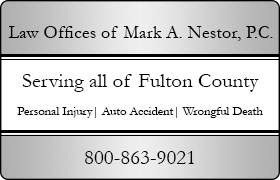 Flowery Branch RICO Act Lawyers, Georgia
Flowery Branch RICO Act Lawyers, Georgia
Sponsored Law Firm
-
 x
x

Click For More Info:
-
Law Offices Of Mark A. Nestor, P.C.
3680 Holcomb Bridge Road Suite 150 Norcross, GA 30092» view mapPersonal Injury, Auto Accident, Wrongful Death Norcross Accident & Injury Law
Attorney Nestor has been licensed to practice in the state of Georgia since 1995. He helps clients in Accident & Injury, Estate, Lawsuit & Dispute, Traffic and Real Estate matters.
800-863-9021
Not enough matches for Flowery Branch RICO Act lawyer.
Below are all Flowery Branch Criminal lawyers.
Lawyers
1-3 of 3 matches
Divorce & Family Law, Criminal, Wills & Probate, Accident & Injury, Divorce



 Mark Nestor Norcross, GA
Mark Nestor Norcross, GA AboutMark Nestor
AboutMark Nestor ServicesPractice Areas
ServicesPractice Areas